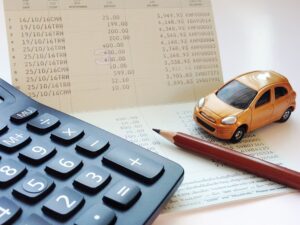Lease Accounting Software For Small Business
As small businesses continue to grow, so do their accounting needs. One of the areas that can be particularly challenging for small businesses is lease accounting. With the recent changes to lease accounting standards, many small businesses need help to keep up. However, with the help of lease accounting software, small businesses can streamline their accounting procedures and ensure compliance with the new standards.
The Financial Accounting Standards Board (FASB) implemented the new lease accounting standards in 2019. These changes require businesses to report their leased assets and liabilities on their balance sheet rather than just in footnotes. This can be difficult for small businesses with limited resources and accounting expertise.

However, a variety of lease accounting software options can help small businesses manage their leases and comply with the new standards. These software solutions offer a range of features, from simple lease tracking to more complex accounting functions.
One option for small businesses is FQMS Lease Software, which offers a cloud-based solution for lease accounting. With FQMS Lease Software, small businesses can easily track their leases, generate accounting reports, and ensure compliance with the new standards. The software offers additional features such as lease negotiation tools and lease-versus-buy analysis.
Another option for small businesses is FQMS Lease Software Estate Manager, which offers a comprehensive lease accounting solution. FQMS Lease Software Real Estate Manager provides lease tracking, accounting, reporting capabilities, and lease administration tools for managing lease agreements and payments. The software also includes features such as data migration and lease abstraction services.

Using lease accounting software can save small businesses time and resources, help them avoid costly errors, and ensure compliance with the new lease accounting standards. Additionally, having accurate and up-to-date lease information can help small businesses make better financial decisions and improve their financial performance.
In conclusion, lease accounting software can be valuable for small businesses looking to manage their leases and comply with the new accounting standards. With various options available, small businesses can find a software solution that meets their specific needs and budget. Small businesses can streamline their accounting processes by utilizing lease accounting software and focusing on growing their business.
Benefits Of Lease Accounting Software For Small Business
Lease accounting software can offer numerous benefits for small businesses, including:

- Compliance: Lease accounting software can help small businesses comply with the Financial Accounting Standards Board (FASB) and International Financial Reporting Standards (IFRS) lease accounting standards, which can be complex and time-consuming to manage manually.
- Accuracy: By automating lease accounting processes, the software can help reduce errors and ensure accuracy in recording lease payments, amortization schedules, and other financial data.
- Time savings: Lease accounting software can save small businesses significant time by automating tasks such as data entry, lease classification, and financial reporting. This allows business owners and finance teams to focus on other critical business operations.
- Visibility: With lease accounting software, small businesses can gain greater visibility into their lease portfolio, including lease terms, payment schedules, and other essential lease data. This can help businesses make more informed decisions about lease renewals, renegotiations, and other strategic opportunities.
- Cost savings: By reducing errors, automating processes, and improving visibility, lease accounting software can help small businesses save money on accounting and administrative costs associated with lease management.
Overall, lease accounting software can give small businesses greater financial control, accuracy, and visibility, helping them make more informed decisions and achieve their financial goals more efficiently.
Why We Use Lease Accounting Software
Lease accounting software is used to streamline the process of tracking, managing, and reporting on lease agreements. The primary reason for using such software is to comply with the new lease accounting standards set forth by the Financial Accounting Standards Board (FASB) and the International Accounting Standards Board (IASB). These standards require companies to report all leases on their balance sheets, which can be complex and time-consuming.

Lease accounting software automates much of this process, reducing the risk of errors and saving time. Additionally, lease accounting software can help companies monitor lease payments, track critical dates, and generate reports for financial analysis and decision-making. Using lease accounting software can help companies stay compliant with accounting standards, improve accuracy, and save time and resources.
